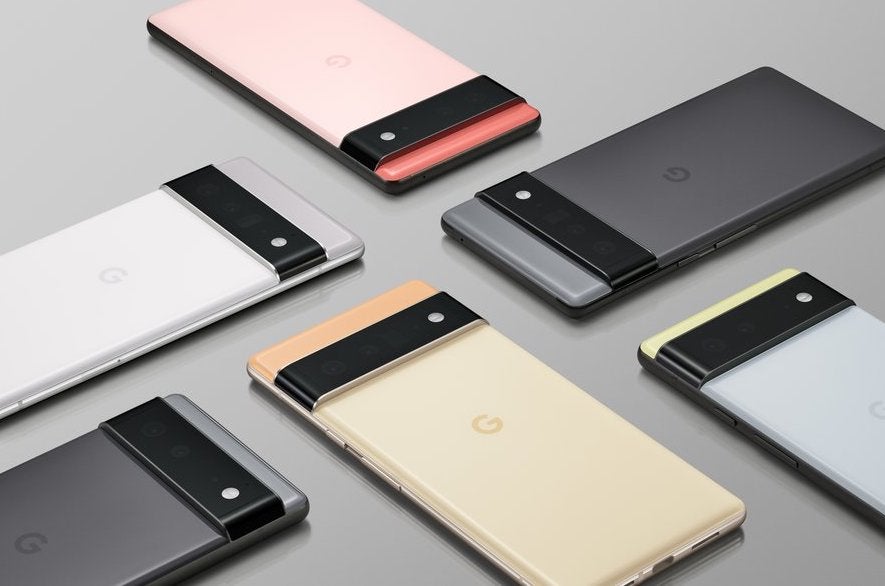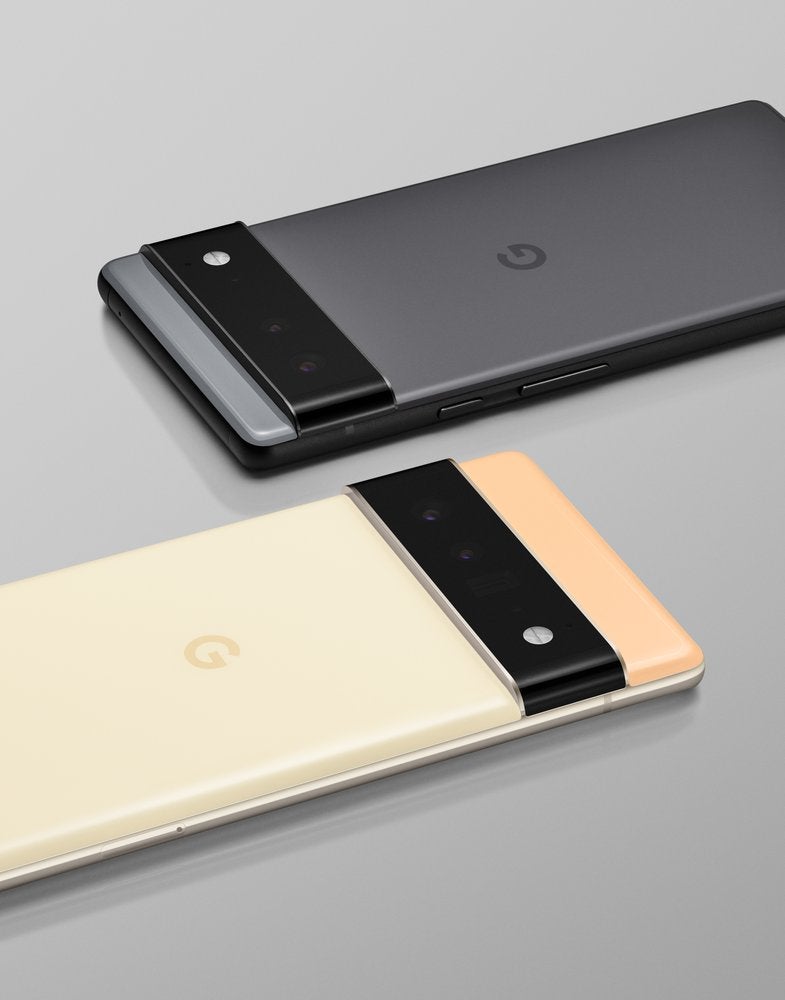Google Pixel 6: New flagship phones announced – sort of

Your support helps us to tell the story
From reproductive rights to climate change to Big Tech, The Independent is on the ground when the story is developing. Whether it's investigating the financials of Elon Musk's pro-Trump PAC or producing our latest documentary, 'The A Word', which shines a light on the American women fighting for reproductive rights, we know how important it is to parse out the facts from the messaging.
At such a critical moment in US history, we need reporters on the ground. Your donation allows us to keep sending journalists to speak to both sides of the story.
The Independent is trusted by Americans across the entire political spectrum. And unlike many other quality news outlets, we choose not to lock Americans out of our reporting and analysis with paywalls. We believe quality journalism should be available to everyone, paid for by those who can afford it.
Your support makes all the difference.Google has announced its brand new Pixel 6 – sort of.
The company has revealed limited details about the new handsets, including the fact that they are coming “this fall” and that there will be a normal and “Pro” version. It also gave some insight into the new design of the phones, which it says “redefine what it means to be a Pixel”.
But most of the announcement focused on its new system of a chip, which it says it has been working on for years, is specifically built for Pixel phones, and includes a variety of machine learning and artificial intelligence features.
It said that it would share the other details about the phone – “like new features, technical specs and pricing and availability” – later on in the year. But it said that it wanted to preview details about the phones, including that chip as well as the new redesign, ahead of time.
The redesign includes a new aesthetic that aims to be in line with the company’s software, as well as a camera bar that streaks along the top of the phone and includes redesigned lenses. The phones also have new “materials and finishes”, Google said, with the Pro being shiny and the normal Pixel 6 being matte.
The company also showed off some different colours of the phone, too, which included a variety of different hues spread across the back.

The design of the phone, including those colours, is built with the new version of Android in mind, Google said. In May, it introduced a new idea called “Material You”, which will allow users to customise the colours and design of the operating system right across its various screens, and Google suggested that would be integrated into the hardware of the Pixel 6.
But the most detailed preview was about “Tensor”, the new chip specifically created for the Pixel 6. It said that it was focused on AI and machine learning – but that it was doing so in a way that would “unlock specific experiences for our Pixel users”, rather than just adding more computer power.
It did not say exactly what those new features would be. But it suggested that some of them would be in aid of the camera, whose photographs will be run through the new chip to add “entirely new features, plus improvements to existing ones”, and that it will also help power speech recognition.
The company gave no indication of when in the autumn the phone would be arriving, or when it would detail more about the phone. It only linked people to a specific part of its site, where potential customers can click a button to receive more information about the phone.
The Pixel is Google’s own Android handset, and is intended as a way of getting the pure Android experience, without the other software and additions that are introduced by other manufacturers. Google has been making them since 2016 – before then, it made phones in collaboration with other companies, under the “Nexus” brand – and has released them every year.
In recent years, and once again with the Pixel 6, the company has taken the unusual measure of revealing specific parts of the phone long before it is actually available, presumably at least in part to minimise the threat of leaks.
Join our commenting forum
Join thought-provoking conversations, follow other Independent readers and see their replies
Comments